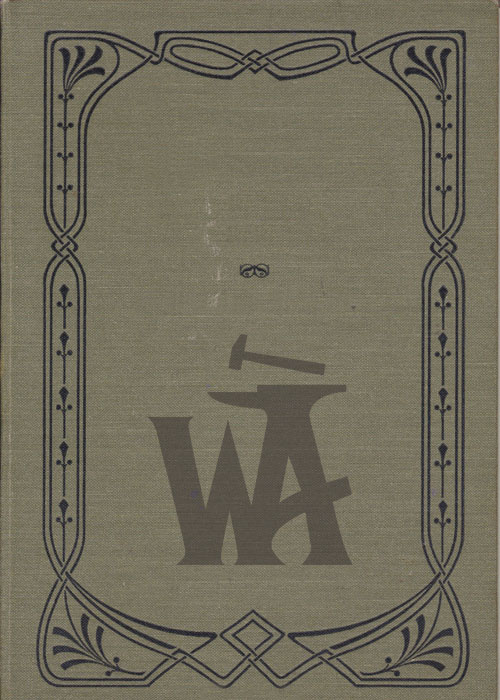An Examination of the Qualities of the Seven Gods
The text provides a glut of information, most of which you already know. Fuhreine and Manndermacht are a paired couple and generally known for their generosity and charity. Mazingunga and Zweite are a paired couple and known for managing day-to-day institutions necessary for a proper civilization. Verbessernder and Stagnriender are paired and represent punctuated equilibrium: both great change and the long slow periods in between. Verructer stands vigilant for threats both in and outside the domain of his siblings. However, towards the end of the book, you find one speculative chapter that borders on heretical.
*****
Changes in the Relationships of The Seven Over Time
However, The Seven as we know them today do not appear to have existed as such in the past. Indeed, if one delves far enough diachronically, they are sure to find some glaring differences with the modern representations. Many of these incongruities could be the result of scribal error, but there also exist many core irregularities. Listed here are a few of the more egregious divergences, but is absolutely not a comprehensive catalog.
The Changing Domain of Various Gods
Fuhreine
The modern incarnation of Fuhreine is an almost omnibenevolent figure, but the ancient goddess was almost revolutionary in nature. Fuhreine took an active role in the lives of the people, standing by and protecting, often with violence, the downtrodden and weak. It is not difficult to see how this attitude was cooled and forms the modern basis for The Kin’s charitable work. The difference can best be described as transitioning from being a catalyst for societal change, to becoming a coping mechanism for the widespread ills of a mature society.
Zweite
Zweite today is a god of tradition, often favored by individuals who currently hold some amount of personal power. The early Zweite though, was more akin to a god of death than anything else. Specifically, he seems to be associated with remembrance, especially of ancestors. Zweite also used to be portrayed as a story-teller and bard, a role often seen today as belonging to Manndermacht. In my opinion, the distillation of Zweite down to his current incarnation is a disservice to the versatility of the ancient figure.
Manndermacht
Little changed over the centuries in regards to this particular deity, however, it is notable that he has only recently become associated with works of charity. The Manndermacht of old was an explorer, always on the lookout for new horizons to reach. So much was his identity contingent upon aspects of discovery, that he was commonly referred to as “The Pioneer” within his titularies.
Pairings of the Seven
Here I believe is the greatest and most intriguing change in the rank of The Seven. Today, Fuhreine and Manndermacht exist as husband and wife. So too does Zweite and Mazingunga. Verbessernder and Stagnriender are also paired as being diametrically opposed aspects of the universe, but not as a romantically involved duo. Verructer, as always, stands vigilant. Hundreds of years ago though, the gods were still paired, but completely differently.
It appears that the original pairings were between: Fuhreine and Zweite, Mazingunga and Stagnriender, Manndermacht and Verbessernder, and Verructer as always stands vigilant. The only modern evidence for these ancient pairings is the familial bond between Fuhreine and Zweite. The other pairings may be shocking for some, but the evidence is very clear as to the truth.
Subjectively, the ancient pairings also appear to be more natural. Zweite and Fuhreine embody actions taken on behalf of creatures both past and future, not some sibling rivalry. Manndermacht and Verbessernder both represent exploration, one of the physical realm and one of the mental. Stagnriender and Mazingunga represent how things are, but also how things could be. And Verructer, as always, stands vigilant.
But why does Verructer stand alone? It is clear, both in ancient and modern representations, that the gods have natural pairings. Why does Verructer alone lack an appropriate companion? Verructer has changed the least of any within The Seven. As he does now, he has always watched for danger, warned of threats, protected from the unknown. He is, and always has been, a god of caution. But why is he cautious? What does he look for? And above all, why do we no longer know of his partner?
*****
The book continues on with some more minor differences in attire, temperament and so on of The Seven, but there does not appear to be anything particular of note on a quick read-through.






